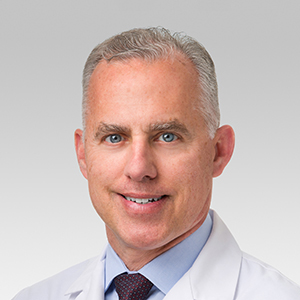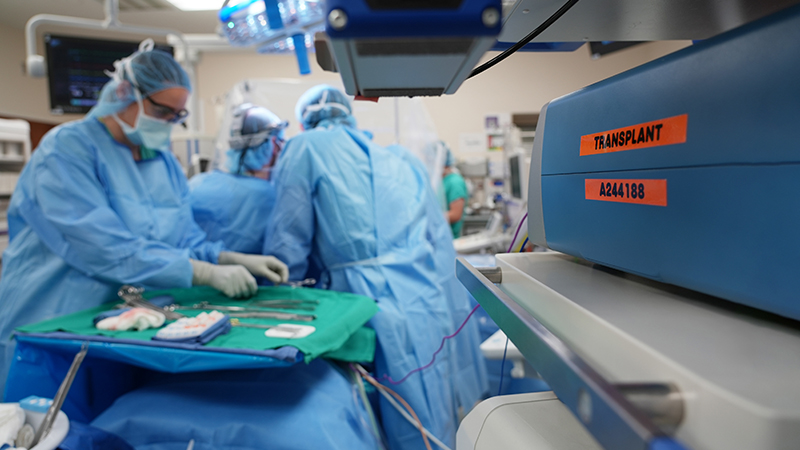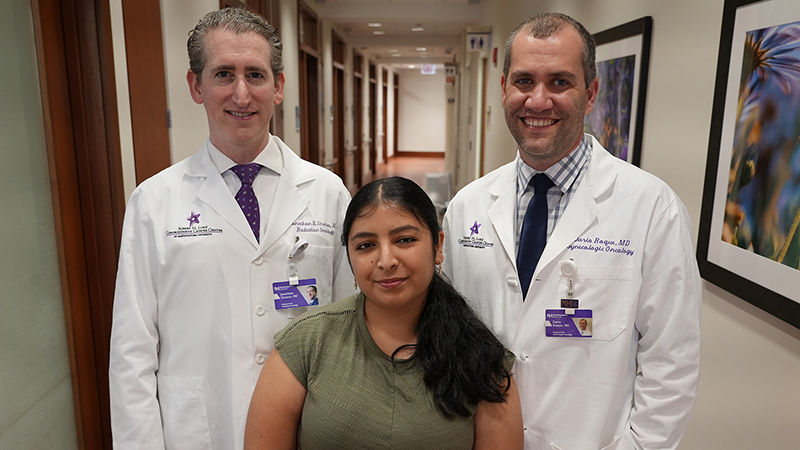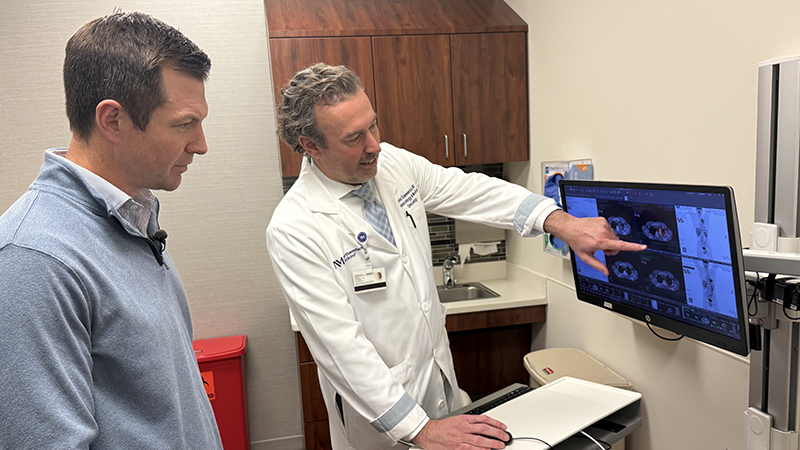Chicago Sports Personality in Remission After Cancer Treatment
Marc "Silvy" Silverman Benefits From Clinical Trial
Published January 2021
As a well-known Chicago sports personality on ESPN radio and a die-hard Chicago Cubs fan, Marc "Silvy" Silverman is no stranger to "waiting it out." However, waiting it out for a Chicago Cubs World Series victory is different than waiting it out when you feel like something is off with your health. Silvy is grateful he didn't do the latter.
Silvy hadn't been feeling well, and after three months of second opinions and hearing that he was OK, he ended up at Northwestern Medicine Lake Forest Hospital with a diagnosis of diffuse large B-cell non-Hodgkin lymphoma (DLBCL), the most common type of non-Hodgkin lymphoma (NHL).
DLBCL Right Off the Bat
NHL is one of the most common cancers in the U.S., accounting for about 4% of all cancers in the country. More than 18,000 people are diagnosed with DLBCL each year. DLBCL is a fast-growing NHL that affects a type of white blood cell called a B-cell. B-cells make antibodies to help your body fight infections. With timely and appropriate treatment, approximately two-thirds of all people with DLBCL can be cured.
Symptoms of DLBCL include:
- A lump in your groin, armpit or neck that grows quickly and is not painful
- Fever
- Drenching night sweats
- Weight loss
- Belly or chest pain or pressure
- Shortness of breath or cough
- Itching
Without my team at Northwestern Medicine, I wouldn't stand a chance.— Marc "Silvy" Silverman Tweet
Rounding Third With a Clinical Trial
Silvy got plugged into treatment and a clinical trial at Northwestern Medicine, where he had access to a novel chemotherapy regimen offered through the Robert H. Lurie Comprehensive Cancer Center of Northwestern University.
The clinical trial was for a new medication called Nivolumab, which works by increasing the effect of your own immune cells against cancer cells. This medication is administered alongside standard treatment for DLBCL, a five-medication regimen called R-CHOP, which has been used with great success against DLBCL for roughly 20 years. The trial aims to see if Nivolumab can work alongside R-CHOP and improve quality of life and symptoms, and control cancer growth in people with DLBCL.
"R-CHOP is the hard-to-beat gold standard, and Nivolumab is a phenomenal treatment option that may complement R-CHOP," says Northwestern Medicine Medical Oncologist Dean Tsarwhas, MD. "This clinical trial is trying to answer the question: Does adding Nivolumab to R-CHOP make treatment better for DLBCL?"
After six treatments of Nivolumab and R-CHOP every three weeks, Dr. Tsarwhas declared Silvy in remission.
The Final Score
"While it's important for people of all ages to pay attention to their bodies, statistics show that men don't take their health as seriously as women," says Dr. Tsarwhas. "Silvy's story is a great reminder for men to take ownership of their health."
Men are 24% less likely to visit their primary care physician than women. Typically, they only see their physician after sustaining a serious injury or illness. Routine physical exams are recommended once per year if you are a male over the age of 50, and once every three years if you are younger than 50 and in good health. If you have a chronic disease or other ongoing health issues, work with your physician to develop an exam schedule that works for you.
Silvy, who lives in Chicago with his wife and two sons, has been a sports radio personality since 1995. He's covered seven Super Bowls, three Bulls NBA Championships and several World Series, but the greatest victory he's ever seen was his own against cancer.
"Without my team at Northwestern Medicine, I wouldn't stand a chance," he says.







